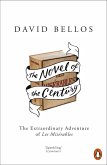Balzac's Narrative Depth: Unveiling Society's Complexities
This Essay delves into Honore de Balzac's novels, particularly "Old Goriot," "Lost Illusions," and "Eugénie Grandet," to explore the deep societal themes of materialism, ambition, greed, and emotional complexities portrayed in his works. Balzac's narratives serve as poignant critiques of Society's flaws and the relentless pursuit of unattainable dreams, resonating with readers across generations. Through his unparalleled expertise in universal compassion and astute storytelling, Balzac illuminates the timeless struggles and conflicts that continue to echo in contemporary societies, making his works enduring and insightful pieces of literature.
The Historical Context of Genius
To understand Honoré de Balzac's literary genius, one must explore his time's historical and sociopolitical backdrop. Born in Tours, France, in 1799, Balzac's formative years unfolded amidst a period of profound political and social upheaval.
Balzac's worldview was inherently shaped by the tumultuous era he inhabited, offering him a front-row seat to significant political shifts and societal transitions. His keen observations of evolving social dynamics, class struggles, and the overall human condition were intricately intertwined with the historical context of his time.
BALZAC'S HUMAN COMEDY
Balzac's literary prowess stemmed from his exceptional talent in delving deep into the intricacies of the human mind, uncovering its multifaceted nature, whether positive or negative. This profound understanding of human essence enabled him to craft an extensive collection of works that endured the test of time.
Dieser Download kann aus rechtlichen Gründen nur mit Rechnungsadresse in A, B, CY, CZ, D, DK, EW, E, FIN, F, GR, H, IRL, I, LT, L, LR, M, NL, PL, P, R, S, SLO, SK ausgeliefert werden.









